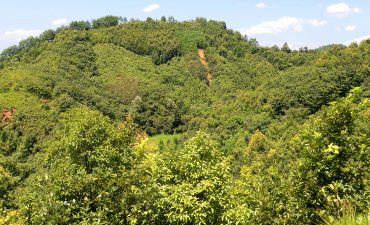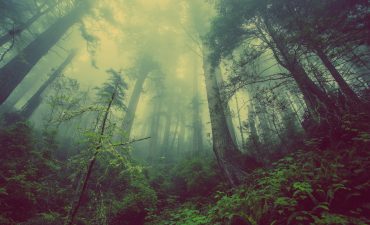German forest is not close to nature and much too young
Almost 90 % of the forest area in Germany is in a poor condition in terms of nature conservation. This is the alarming conclusion of a recent study by the Naturwald Akademie. The authors of the „Alternative Forest Condition Report“ published that this lack of near-natural forest ecosystems is leading to a severe loss of biological diversity.
Ecosystem based analysis of the condition of the German forest
Germany ranks among the densely wooded countries in Europe. One third is forested and the timber stocks in Germany account for 336 m3 per hectare. Forestry claims to occupy a leading place compared with other European countries. For more than 30 years the aim of forestry is to implement close-to-nature forest management throughout Germany. This objective has in Germany already generated an increasing proportion of structurally diverse mixed stands, long regeneration periods and natural rejuvenation methods. The good condition of German forests is the consequence of the silvicultural actions of many forest owners and foresters and the result of a forestry policy based on balance and sustainability. These are statements from the Federal Ministry of Food and Agriculture based on The Third National Forest Inventory, 2014. But is this the truth?
In this study we developed an ecosystem-based analysis to assess the condition of the German forest using also the data from the National Forest Inventory and data showing the potential natural vegetation in Germany. Those data sets were processed and grouped into 22 different forest ecosystems. For the analysis we used criteria taken from natural conservation assessments such as ‘threat’ and ‘naturally’ but also new developed criteria like ‘management’ and ‘protection status’. The criteria were quantified using indicators derived from the National Forest Inventory ending in a new developed ecosystem-based evaluation scheme.
The results show different statements compared to the Ministry of Food and Agriculture. The German forest is in a critical condition after aggregating all 22 forest ecosystems. Some forest ecosystems, especially acidic mixed oak forest or the wavy hair-grass beech forest are even in a very critical condition. Additionally, the mentioned close-to-close nature forest management has to be questioned, since one fifth of all forest ecosystems show very critical management results.
The conclusion regarding the good condition of the German forest which is stated in the Third National Forest Inventory is questionable, if one is using an ecosystem based approach that is based on reference values provided by nature, a different result occur. These results should be discussed in forestry and politics and a measure catalog for forest ecosystems which are in critical and very critical conditions should be implemented.
The study is so far only available in German. A detailed English summary follows.
Source
Torsten Welle, Knut Sturm, Yvonne Bohr: Alternativer Waldzustandsbericht: Eine Waldökosystemtypen-basierte Analyse des Waldzustandes in Deutschland anhand naturschutzfachlicher Kriterien, 24.04.2018


